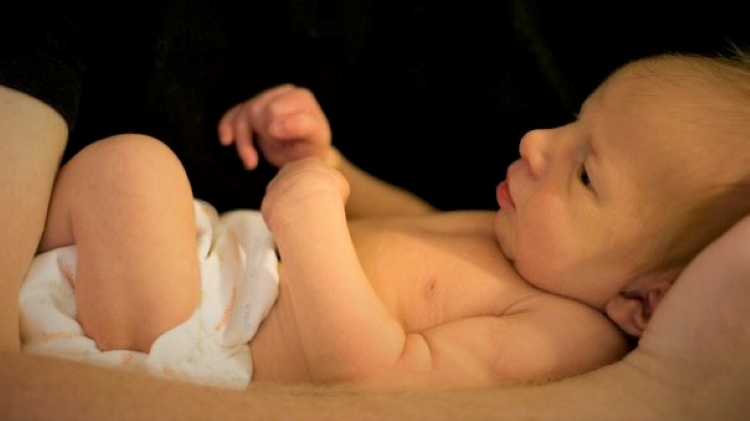Difficult circumstances can feel isolating. Something bad happens and we feel as if we’re the only one going through it. No one else understands it or us — in fact, we assume all they feel is pity for us. We silently know that they are secretly glad it’s us and not them. On my worst days, this is the tape I hear playing over and over again.
You’re all alone in this. No one gets what you’re going through. No one wants to. And, by the way, all of this means you’re a failure.
That monologue sounds absurd as I write it, but I’ve rehearsed that script so many times in my head. But then sometimes all it takes is one strong intervening voice to break the broken record.
Ten months ago Ben & I became parents to a tiny, wrinkled red headed boy we named Samuel Reed. The pregnancy had been fairly uneventful, even boring I was told by my OB at one visit. But for reasons we still can’t pinpoint, my placenta began to give out about a month before it should have. While Reed was born weighing only 5.5 pounds, in every other way he seemed healthy.
Now 10 months old, Reed weighs a very hard-earned 17 pounds. His hair is red like his daddy’s, and he has big deep blue eyes. He sits up, plays with toys, smiles, laughs, loves fruits but not veggies, and sleeps like a dream. But he doesn’t roll over well, crawl, pull up, or even verbalize much. The doctor says that developmentally he’s a couple of months behind. This didn’t bother me too much until she recommended genetic testing, a referral to a neurologist, and an assessment by a developmental pediatrician. The word neurologist alone freaks me out. We’ve learned that about 30% of the time, a baby will simply ignore all status quo and develop at his own pace, usually closing the gap by his second birthday. But we could also be dealing with anything from autism to cerebral palsy to a genetic disorder. I left that doctors appointment crying.
It seems everywhere I look other first time parents are enjoying their “normal” babies. They are delighting in their babies hitting those developmental milestones right on cue. They don’t have to worry about scary words like autism or neurologists. They aren’t living in my no-man’s land of worry and what if’s.
But then I read an acquaintances’ blog about her toddler’s delay with crawling, walking, and speaking. And relief tumbled over and out of me in a way that even the most well meaning words from outsiders can’t evoke. And it felt so good to not feel alone. To not feel like the only one.
For months I’ve been hesitant to write or speak about Reed’s experience — some because I believed the absurd monologue. And some because to speak it makes it more real. But if by speaking out loud, if by going first for someone else, I can pass that hope on to them, then I have to talk about it. For some, this story won’t hit home and you’ll simply be relieved that this isn’t your journey. But for anyone who’s had more questions than answers, for anyone who’s watched perfectly normal expectations dwarfed by fear, or for anyone who needs to hear a different voice, I offer you our story.
I don’t know where our story will take us or what the next doctor’s appointment will bring, but I lean hard into a faith that promises redemption.


